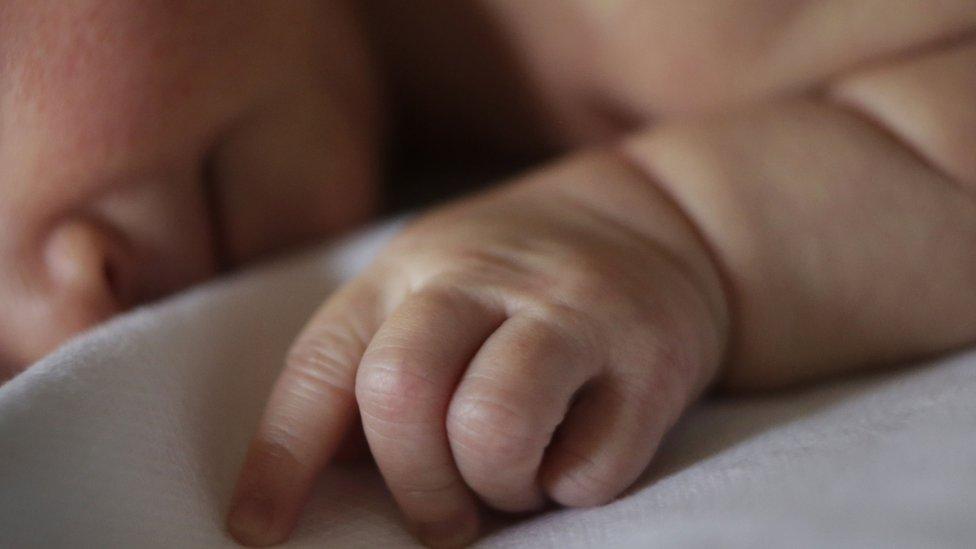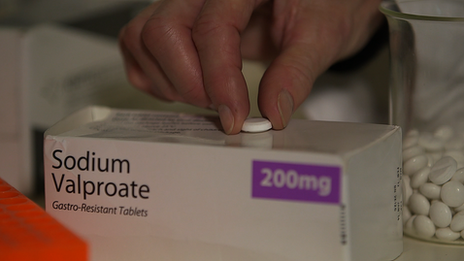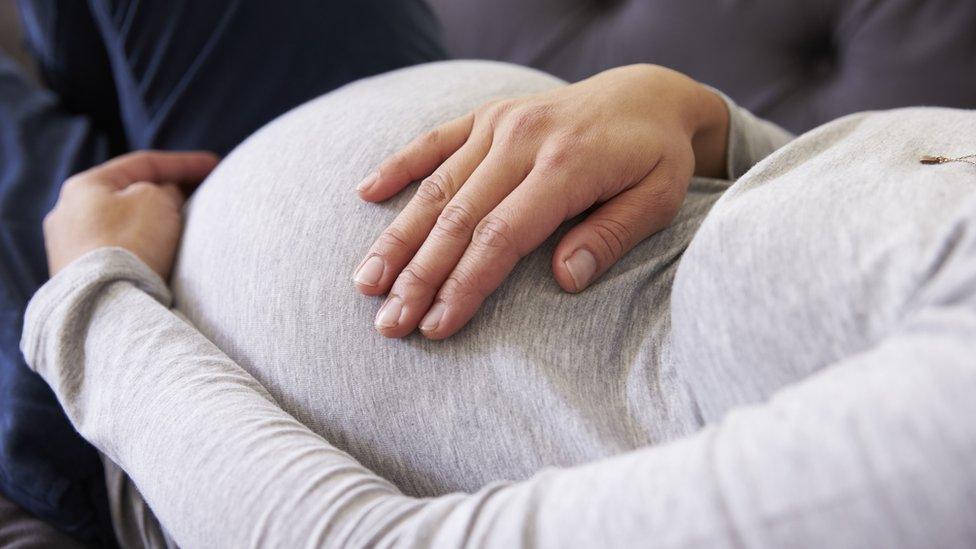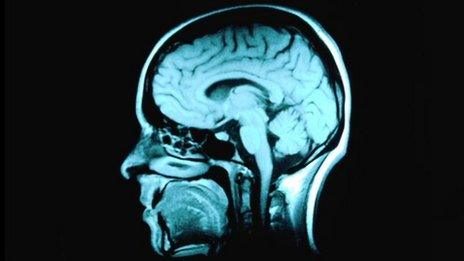New evidence in France of harm from epilepsy drug valproate
- Published

A drug given to pregnant women for epilepsy and bipolar disorder caused "serious malformations" in up to 4,100 children, a French study suggests.
Mothers treated with valproate for epilepsy were up to four times likelier to give birth to a malformed child, the preliminary study found.
Introduced in France in 1967, valproate is prescribed widely worldwide.
Doctors in France are now advised not to give it to girls, women of childbearing age and pregnant women.
The drug's manufacturer, Sanofi, responded in a statement that it had been "totally transparent with health authorities".
"We are aware of the painful situation confronting the families of children showing difficulties that may have a link with the anti-epileptic treatment of their mother during pregnancy," it said.
Some of those affected say France and the company were too slow to warn of side-effects.
The risk of birth defects associated with valproate, marketed as Epilim, Depakine, Depakote and Stavzor among other names, has been known since the 1980s, especially for spina bifida.
In the UK, the National Health Service (NHS) issued an alert, external earlier this month saying valproate should only be given to girls and women of childbearing age under specialist supervision and only when other medications had been found not to work.

Counting the cost: James Reynolds, BBC News, Paris
Valproate - prescribed in France, the UK and many other countries - now carries a clear warning : serious risk of birth defects.
In France, it turns out that it took far too long for this danger to become apparent. The drug was first introduced here in 1967. By the early 1980s, there were fears that the drug might be a factor in birth defects, including spina bifida, but prescription rules were only finally tightened in 2014.
France is now working out the damage caused during this long period. Families of children with birth defects want to know why it took so long for this country's authorities to identify the serious risks associated with taking the drug during pregnancy.

'Very high'
According to the new report, external (in French) by France's National Agency for the Safety of Medicines (ANSM), between 2,150 and 4,100 children suffered severe malformations linked to the drug.
"The study confirms the highly teratogenic [capable of causing birth defects] nature of valproate," Mahmoud Zureik, ANSM's scientific director and co-author of the report, told AFP news agency.
"The figure of about 3,000 severe malformations is very high."
Types of birth defects attributed to the drug include spina bifida - which occurs when a section of the spinal column does not form properly - and defects of the heart and genital organs.
The risk of autism and developmental problems was also found to be higher, and will be explored in a follow-up report due later this year.
Women treated for bipolar disorder were at a lower risk than those treated for epilepsy, the study found, but were still twice as likely to give birth to children with major birth defects.
According to ANSM, this is because women treated for bipolar disorder were less exposed to the drug.
In its alert issued on 6 April, the NHS noted that valproate was an "effective medication used to treat epilepsy and bipolar disorder" but added that it was also aware of its "off-label" use to treat migraine or chronic pain.
Lawsuit
Some families of children with birth defects born to women who took the drug while pregnant - grouped under an umbrella association known as APESAC, external (in French) - have sued Sanofi, saying that it did not adequately warn about the risks.
"The number of victims is potentially huge," APESAC president Marine Martin told AFP.
"We need to take into account children with malformations and autism, as well as families that lost a baby due to treatment during pregnancy."
Ms Martin says two of her children, a girl and a boy, suffered physical defects brought on by valproate.
French MP Gerard Bapt welcomed the report.
"It now appears fundamental that valproate in all its forms should not be prescribed for women of child-bearing age," he said.
Medically necessary exceptions, he added, should be rare and accompanied by "mandatory contraceptive use".
- Published10 March 2013

- Published20 June 2016

- Published28 September 2012
